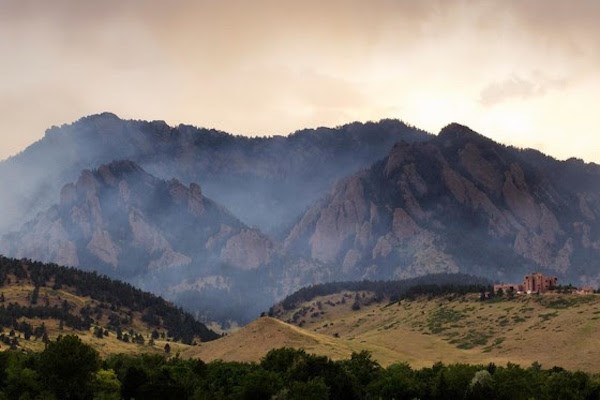NEWS RELEASE
BOULDER COUNTY PUBLIC HEALTH
*************************
By now, you’ve surely noticed the smoke and haze from the wildfires burning across Colorado. You may have also heard that we have unhealthy levels of ozone. The combination of fine particulates in smoke with lung-burning ozone can endanger your health and increase susceptibility to severe illness from COVID-19.
Particulates and ozone can be harmful to everyone, but they are particularly damaging for seniors, children, and those with heart and lung conditions — many of the same people who are at added risk from COVID-19.
Here are some actions you can take to protect your health and improve air quality:
Monitor air quality conditions
You can check current and future air quality conditions in your area at AirNow.gov. Boulder County Public Health is also keeping a tally of Ozone Action Days on Facebook, Twitter, and Instagram.
Avoid prolonged exertion outdoors when air quality is poor
Smoke is influenced by wind and weather and can remain at consistently unhealthy levels for many days. Ozone is highest in the afternoon on hot, sunny days. To protect your lungs, it’s more important than ever to be careful when you venture from home.
“I used to look forward to riding my bike after work,” said Collin Tomb, Air Quality Team lead at Boulder County Public Health. “These days, I’m more aware of the harmful effects of ozone and smoke, especially when exercising outdoors. Because of this, I’ve moved my bike ride to the morning when the air quality is better and it’s cooler and more comfortable anyway.”
Learn why this is happening
Human activity creates air pollutants, many of which also warm the atmosphere. Ozone is formed by chemicals emitted from the use of fossil fuels in human activities like electricity generation, driving, heating and cooling, and manufacturing. These processes also fuel climate change, which in turn increases the length and severity of wildfire season in the Western United States.
Take action to create cleaner air
It is frustrating that air quality is an obstacle to spending time outside, especially when we are already confined by COVID-19, but there are things you can do to reduce pollution and the impacts of climate change. Some simple steps you can take now include reducing driving, combining car trips, switching to electric lawn equipment, and filling up on gasoline after 5 p.m. Learn more by visiting https://
However, there’s only so much we can do individually — action is needed at a larger level. The state of Colorado is working to put policies in place to reduce climate-disrupting air pollutants and this effort needs public input.
If you want to learn more and voice your opinion, visit the Air Quality Control Commission webpage — there are upcoming public hearings a
For more information about air quality and public health or Boulder County’s sustainability mission, visit www.boco.org/
*************************


.jpg;w=120;h=80;mode=crop)
